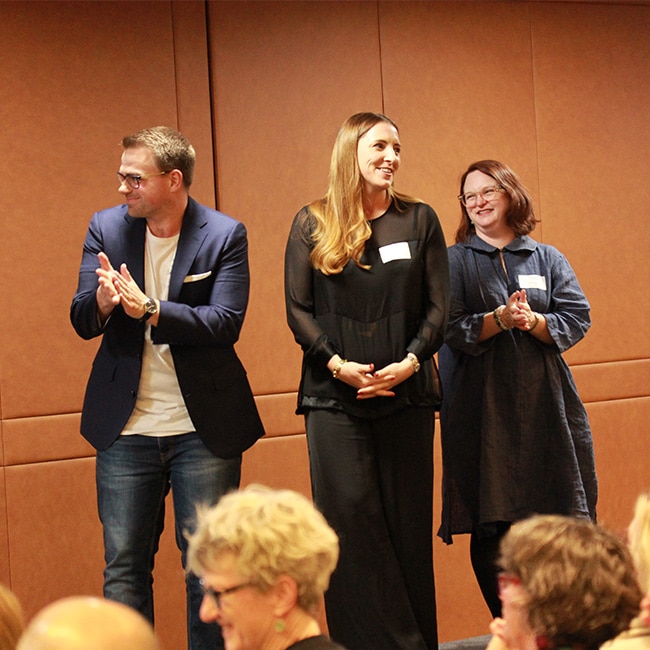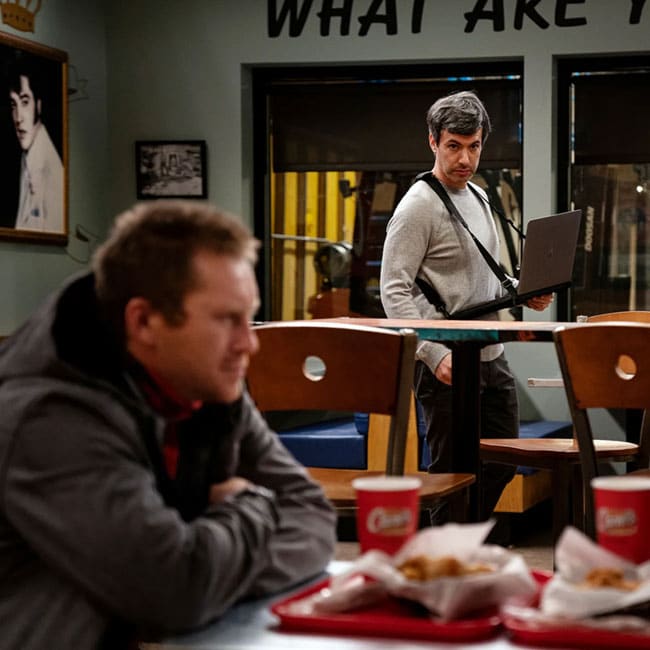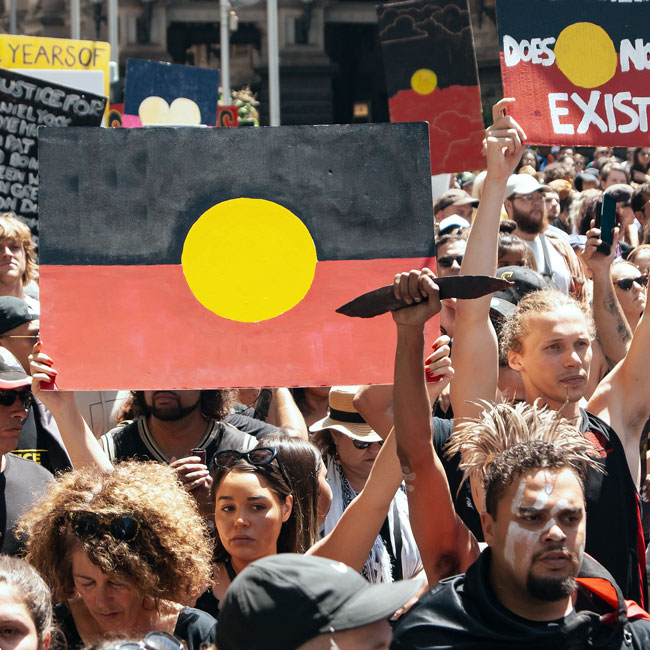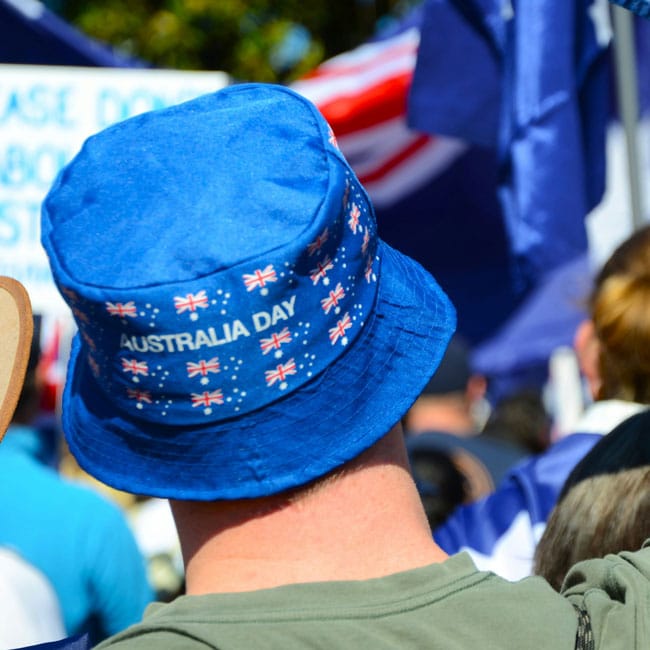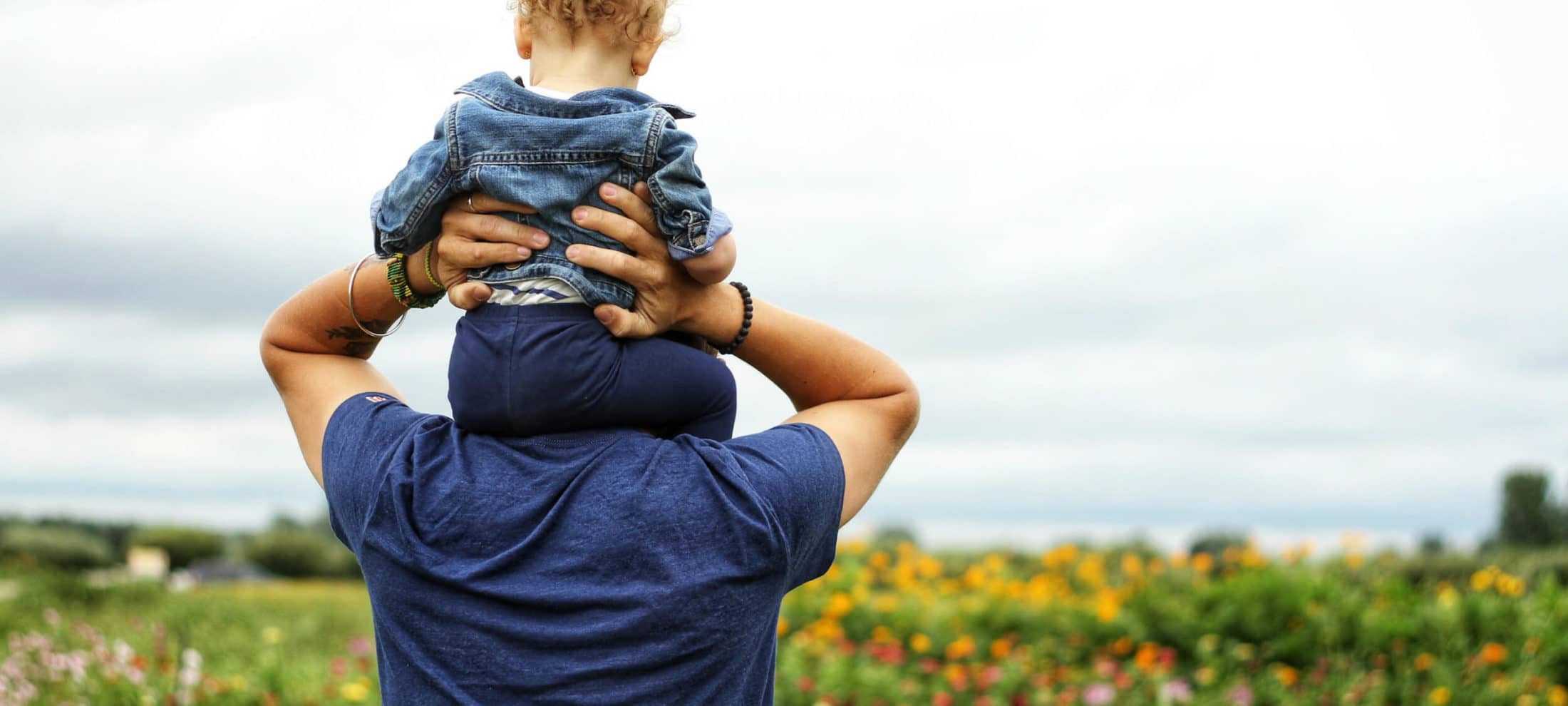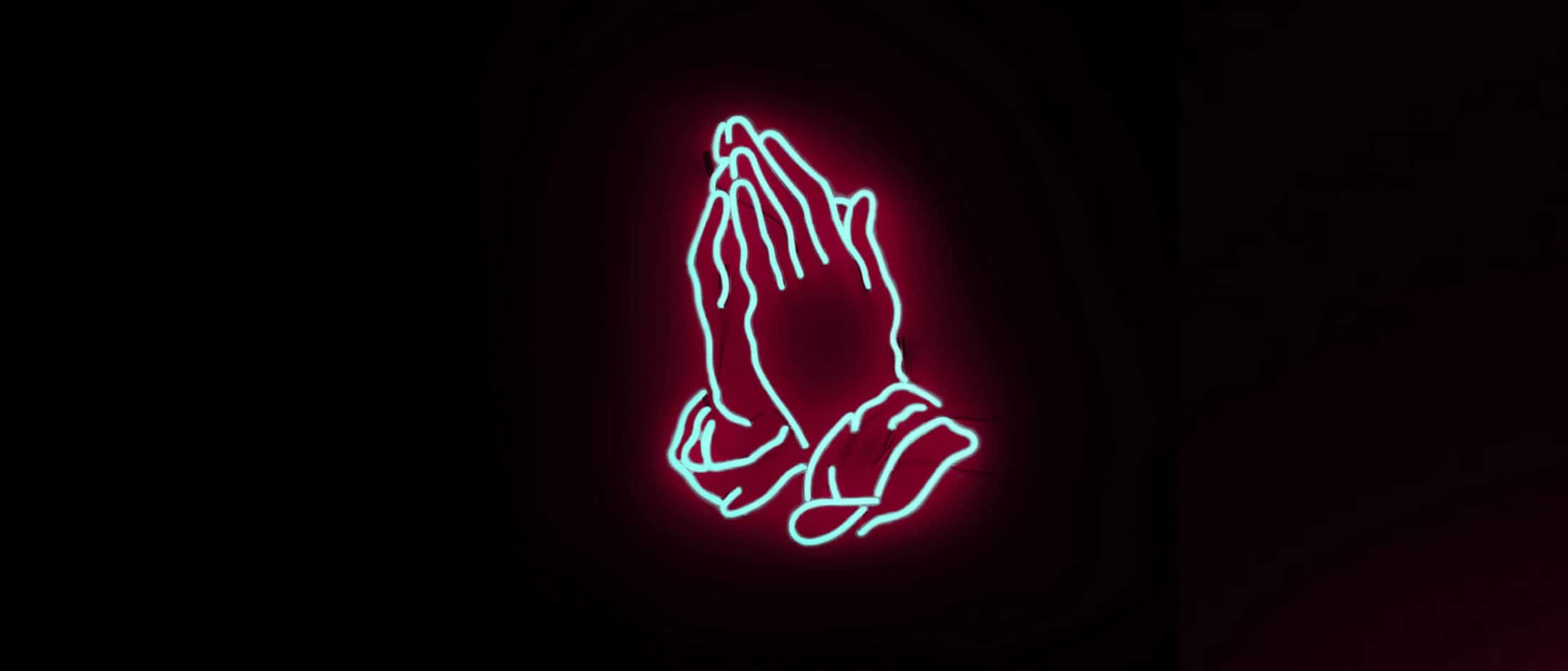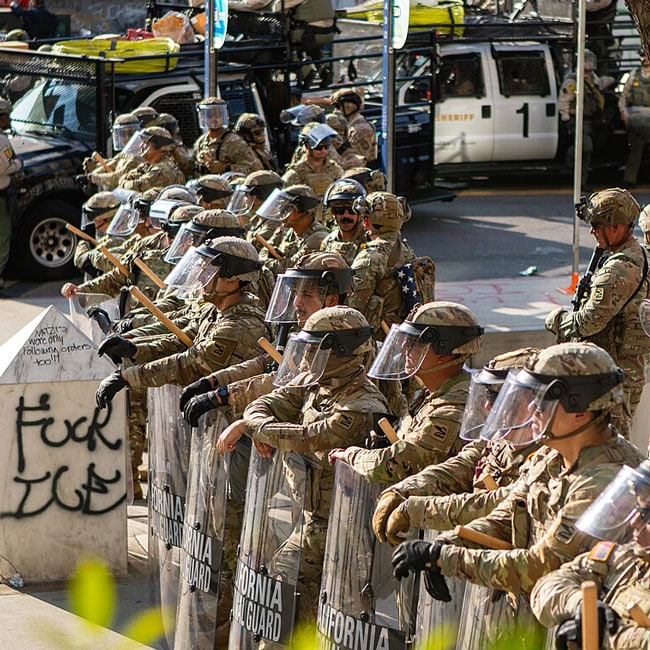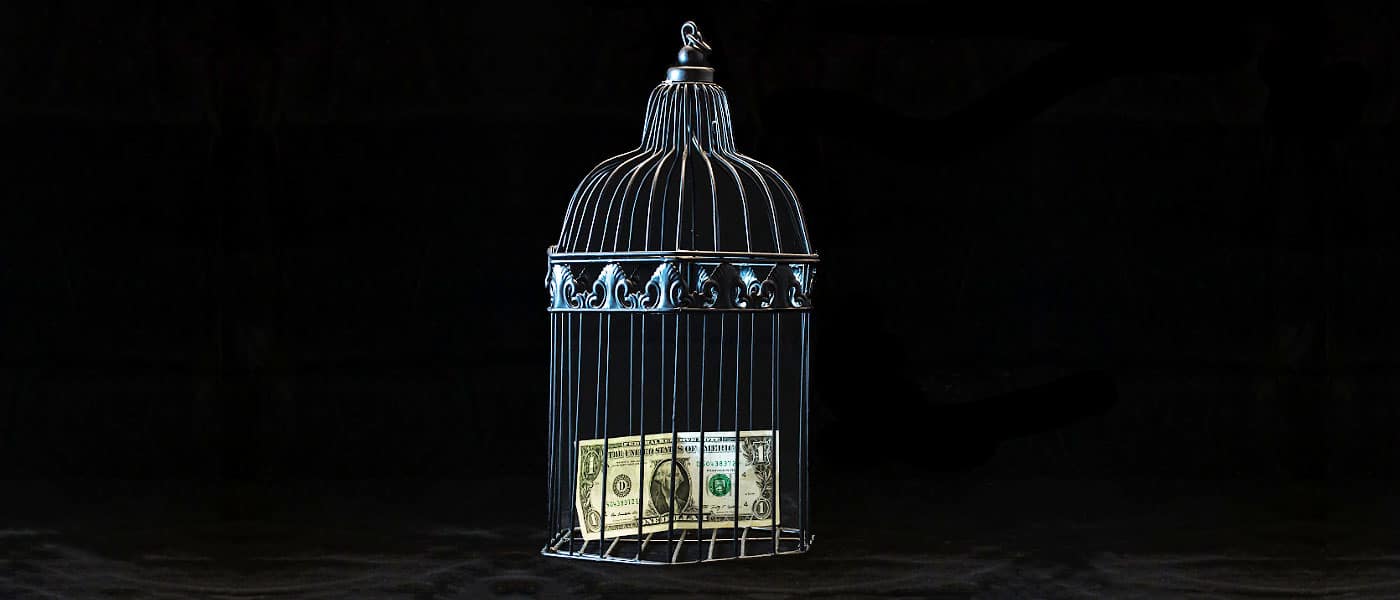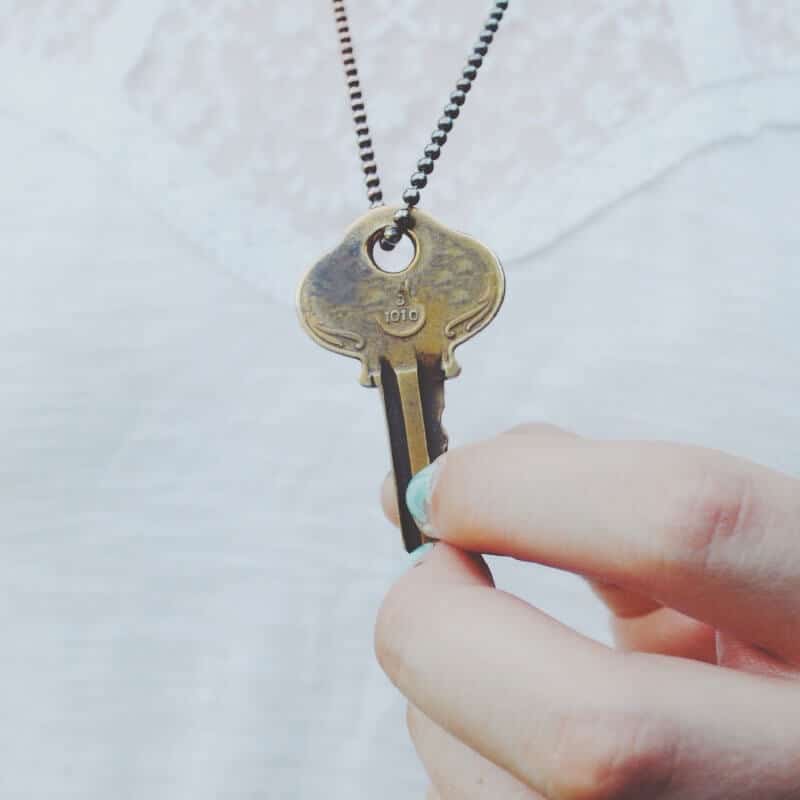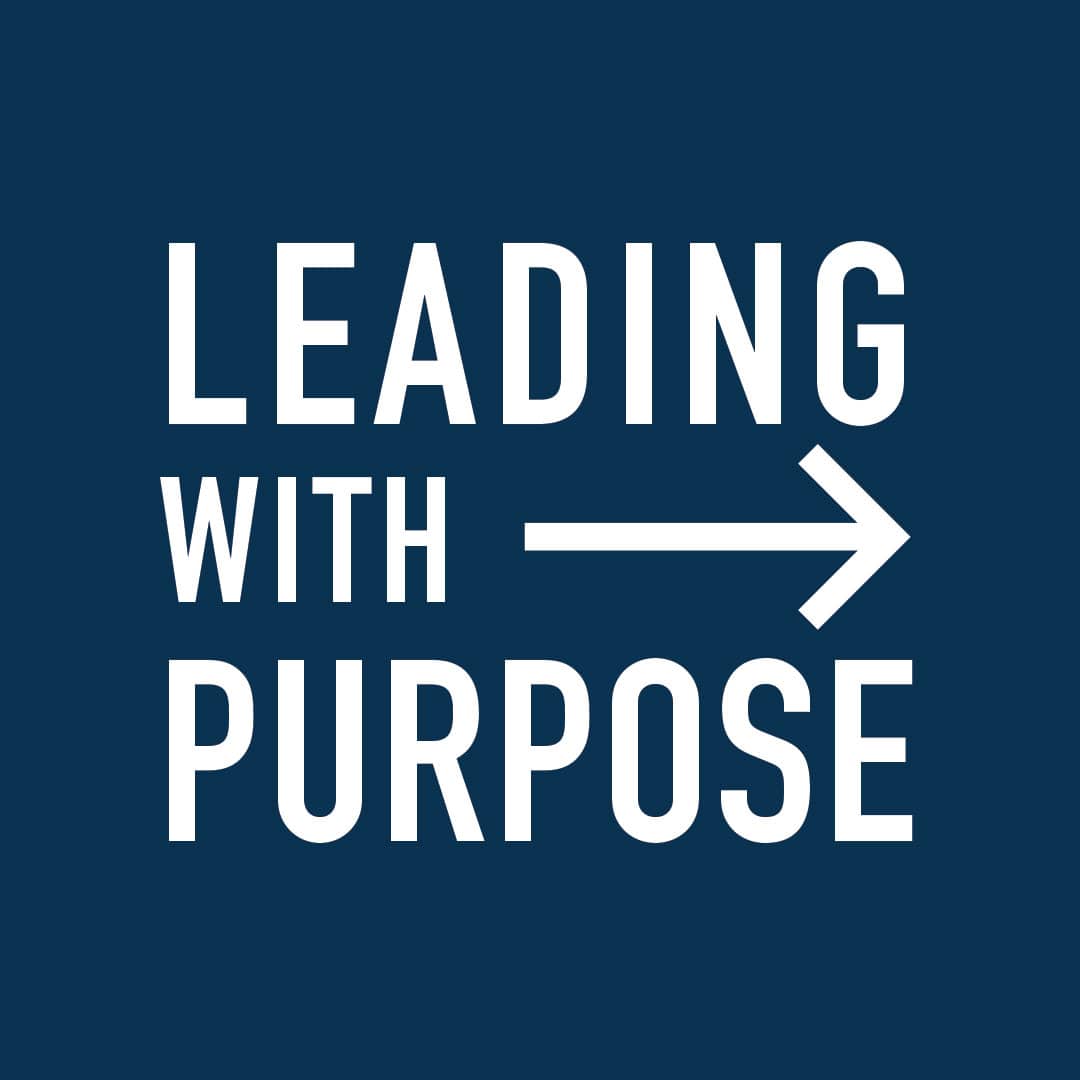Rethinking the way we give

Whether it’s helping out a neighbour in need, assisting a stranger living rough on the streets or being asked at the checkout to donate $2 to charity, we are all, at some point, involved in the action of giving.
The giving of service. The giving of time. The giving of money. We often find ourselves giving from a place of good intention, but not fully understanding the consequences of our actions.
Away from home, when travelling in a developing country, it’s especially difficult to ignore the begging children on the streets, families living in overcrowded homes and poverty, the absence of healthcare and the poor state of schools.
In 2006, Australian philanthropist Tara Winkler witnessed the distressing realities of children living in poverty whilst visiting a Cambodian orphanage. She was so moved that she returned a year later with money she had fundraised, ready to work hard to improve the children’s quality of life. During her time as a volunteer, she discovered that the orphanage’s director was abusive and misappropriating donations, an occurrence not unheard of in the industry. Winkler also learnt that most ‘orphans’ still had their families but were living in these institutions to escape the poverty cycle.
Attempting to save these children, Winkler established her own orphanage in 2007, only to realise it was further fueling Cambodia’s widespread misuse and exploitation of orphanages, causing harm to children and separating families. She has since developed the Cambodia Children’s Trust, an organisation that aims to address root causes of poverty and family unit breakdown through social work and locally based initiatives involving education and healthcare, providing sustainable and positive futures for at-risk communities.
By spotlighting this story, I am not aiming to discourage the act of giving but rather to motivate individuals to have a more considered approach on how we give and to whom. As highlighted in philosopher Peter Singer’s book, The Life You Can Save, ‘perhaps those who do not research think that it will be too difficult to find out what charities offer better value, so they may as well give to whatever charity last caught their eye’. This is reflected in Australia’s Giving Report from 2019, when it was recorded that 41% of Australians would donate more money in the next 12 months if they better understood where their money would be spent, whilst 23% hoped for more transparency about the cause and its regulations.
So, how can we shift these figures and guide people toward more impactful giving choices?
Let’s take a look at UNICEF. According to their Donate Where Need is Greatest appeal, of each dollar donated, 80 cents is specifically directed towards helping vulnerable children, 14 cents to essential fundraising costs and six cents to administration.
Given these figures alone, it’s difficult to assess the lasting impression of this particular campaign, so we have to look further. We discover their main goal is to break the vicious cycle of poverty by providing small initiatives that will have beneficial, long-term effects. A donation of 84 dollars equates to 84,000L of clean drinking water made accessible to some of the most at-risk children and their communities around the world. This small change results in the difference between a safe and healthy child to one who might face life-threatening illnesses through contaminated water supplies. At this point, we can gauge that donations will be properly utilised by this cause and will be incredibly significant to the lives of these children, stressing the importance of who we give to rather than a quantitative measure.
However, it’s a big ask for everyday people, simply trying to do their part, to pause and assess how their time and money could best be spent. Sometimes, it is just simpler and seems just as effective to donate to any charity that loosely relates to an ethical issue that matters most to us. To make better decisions when it comes to giving, online organisations such as The Life You Can Save and GiveWell can help evaluate and recommend high-impact, cost-effective and evidence-based charities, proving that everyone has the potential to make a meaningful impact.
By taking a few extra measures to reflect and consider where and how we direct our intentions, we can make more ethical choices that result in sustainable outcomes and give to others in a way that transforms their lives for the better.
This article won the 2024 Young Writers’ Competition Under 18s category.
Ethics in your inbox.
Get the latest inspiration, intelligence, events & more.
By signing up you agree to our privacy policy
You might be interested in…
Opinion + Analysis
Society + Culture, Politics + Human Rights
Who gets heard? Media literacy and the politics of platforming
Opinion + Analysis
Society + Culture
Arguments around “queerbaiting” show we have to believe in the private self again
Opinion + Analysis
Society + Culture
The power of community to bring change
Opinion + Analysis
Relationships, Society + Culture
I’d like to talk to you: ‘The Rehearsal’ and the impossibility of planning for the right thing
BY Serei Bayley
Serei is a 15-year-old high school student currently attending Redlands. Interested in commerce and history subjects, she has aspirations to study law or business at a university overseas. She loves travelling and spending summer days at the beach. Earlier in 2024, Serei visited Cambodia, where she was inspired by her interactions with various NGOs, which motivated her to write this piece.
Ethics Explainer: Just Punishment

Ethics Explainer: Just Punishment
ExplainerSociety + CulturePolitics + Human Rights
BY The Ethics Centre 6 DEC 2024
In 2001, Marcellus Williams was convicted of killing Felicia Gayle, found stabbed to death in her home in 1998.
Over two decades later, he was given the death penalty, directly against the wishes of the prosecutor, the jury and, notably, Gayle’s family.
Cases like this draw our attention to the nature of punishment and its role in delivering justice. We can think about justice, and hence what is just punishment, as a question about what we deserve. But who decides what we deserve, and on what basis?
There are many ways that people think about punishment, but generally it’s justified in some variation of the following: retribution, deterrence, rehabilitation, and/or restoration. These are not all mutually exclusive ideas either, but rather different arguments about what should be the primary purpose and mode of punishment
Purposeful Punishment
Punishment is often viewed through the lens of retribution, where wrongdoers are punished in proportion to their offenses. The concept of retributive justice is grounded in the idea that punishment restores balance in society by making offenders ‘pay’ in various ways, like prison time or fines, for their transgressions.
This perspective is somewhat intuitive for most people, as it’s reflected in our moral psychology. When we feel wronged, we often become outraged. Outrage is a moral emotion that often inspires thoughts of harming the wrongdoer, so retributive punishment can feel intuitively justified for many. And while it has roots in our evolutionary psychology, it can also be a harmful disposition to have in a modern context.
The 18th-century philosopher Immanuel Kant strongly defended retributive justice as a matter of principle, much like his general deontological moral convictions. Kant believed that people who commit crimes deserve to be punished simply because they have done wrong, irrespective of whether it leads to positive social outcomes. In his view, punishment must fit the crime, upholding the dignity of the law and ensuring that justice is served.
However, there are many modern critics of retributivism. Some argue that focusing solely on punishment in a retributive way overlooks the possibility of rehabilitation and societal reintegration. These criticisms often come from a consequentialist approach, focusing on how to create positive outcomes.
One of these is an ongoing ethical debate about the role of punishment as a deterrent. This is a consequentialist perspective that suggests punishment should aim to maximise social benefits by deterring future crimes. This view is often criticised because of its implications on proportionality. If punishment is used primarily as a deterrent, there is a high risk that people will be punished more harshly than their crimes warrant, merely to serve as an example. This approach can conflict with principles of fairness and proportionality that are central to most conceptions of justice. Some also consider it to be a view that misunderstands the motives and conditions that surround and cause common crime.
Other, more contemporary, consequentialist views on punishment focus on rehabilitation and restoration. Feminist philosophers, such as Martha Nussbaum, have proposed a broader, more compassionate view of justice that emphasises human dignity. Nussbaum suggests that a purely punitive system dehumanises offenders, treating them merely as vessels for punishment rather than as individuals with the capacity for moral growth and change.
They argue that this dehumanisation is a primary factor in high rates of recidivism, as it perpetuates the cycle of disadvantage that often underpins crime. Hence, an ability for change and reintegration is seen by some as crucial to developing pro-social methods of justice that decrease recidivism.
Importantly, these views are not inherently at odds with traditional punishment, like prison. However, they are critical of the way that punishment is enacted. To be in line with rehabilitative methods, prisons in most countries worldwide would need to see a significant shift towards models that respect the dignity of prisoners through higher quality amenities, vocations, education, exercise and social opportunities.
One unintuitive and hence potentially difficult aspect of these consequentialist perspectives is that in some cases punishment will be deemed altogether unnecessary. For example, if a wrongdoer is found to be impaired significantly by mental illness (e.g. dementia) to the extent that they have no memory or awareness of their wrongdoing, some would claim that any type of retributive punishment is wrong, as it serves no purpose aside from satisfying outrage. This can be a difficult outcome to accept for those who see punishment as needing to “even the scales”.
Justice and Punishment
The ethical implications of punishment become even more complex when considering factors like bias and the reality of disproportionate sentencing. For example, marginalised groups face more scrutiny and harsher sentences for similar crimes, both in Australia and globally. This disparity is often unconscious, resulting in a denial of responsibility at many steps in the system and a resistance to progress.
If punishment is disproportionately applied to disadvantaged groups, then it is not just. The ethical demand of justice is for equal treatment, where punishment reflects the crime, not the social status or identity of the offender.
Whether our idea of punishment involves revenge or benevolence, it’s important to understand the motivations behind our convictions. All the sides of the punishment spectrum speak to different intuitions we hold, but whether we are steadfast in our right to get even, or we believe an eye for an eye leaves the whole world blind, we must be prepared to find the nuance for the betterment of us all.

Ethics in your inbox.
Get the latest inspiration, intelligence, events & more.
By signing up you agree to our privacy policy
You might be interested in…
Opinion + Analysis
Society + Culture
‘Vice’ movie is a wake up call for democracy
Opinion + Analysis
Business + Leadership, Politics + Human Rights
Vaccination guidelines for businesses
Opinion + Analysis
Health + Wellbeing, Politics + Human Rights
Constructing an ethical healthcare system
Big thinker
Politics + Human Rights
Big Thinker: Kimberlé Crenshaw
BY The Ethics Centre
The Ethics Centre is a not-for-profit organisation developing innovative programs, services and experiences, designed to bring ethics to the centre of professional and personal life.
Hey liberals, do you like this hegemony of ours? Then you’d better damn well act like it

Hey liberals, do you like this hegemony of ours? Then you’d better damn well act like it
Opinion + AnalysisPolitics + Human Rights
BY Alexandre Lefebvre 6 DEC 2024
In September 2016, just before that year’s United States presidential election, The Claremont Review of Books published an essay that became an instant classic. It was titled “The Flight 93 Election”, and its message was stark. If voters didn’t rush the cockpit and come out for Donald Trump in numbers, then traditional values and American interests would be flown into the ground. “If you don’t try, death is certain”, was its rallying cry.
Why were conservatives so scared? Their panic reflected a real insight: for decades, liberalism — its moral values and sensibilities — had been gaining traction in American (and, more broadly, Western) culture. The worry wasn’t so much about liberalism taking over politics. On paper, at least, and despite gross and systemic failures, the United States has always been a constitutional liberal democracy. The problem was the slow and steady creep of liberal values into areas of life completely remote from politics. As a prominent conservative scholar put it:
“Liberalism is thus not merely, as is often portrayed, a narrowly political project of constitutional government and juridical defence of rights. Rather, it seeks to transform all of human life and the world.”
I’m a liberal and I believe conservatives are absolutely right on this point. Liberalism is hegemonic and liberals are the hegemons of the Western world. But that hegemony won’t last if we keep carrying on as we are.
If I had to sum up the 2024 election in a headline, it would be: “This Just In: Actually Existing Liberalism Sucks”. Liberalism is an ideology rooted in a core moral concept — fairness. It’s easy to lose sight of how extraordinary liberalism is. It teaches every single one of its members that they matter, and that every citizen, you and me included, has a legitimate expectation to be treated reasonably and fairly by the basic institutions of society. Fairness and reciprocity for all are the radical moral adventure of liberalism, and I believe it is a beautiful ideal capable of inspiring the enduring support of large majorities.
The trouble is that liberals in most liberal democracies — maybe even especially in the United States — do two things that almost seem designed to inspire resentment: they fail to take inequality seriously, and they moralise.
Consider how many times we heard the term “vibecession” in the run-up to the election. It played nonstop in The New York Times, essentially gaslighting the American public into believing that the cost of living was in their heads or, at worst, a thing of the past. But as Bernie Sanders posted on X, and reiterated in a justifiably prickly post-election podcast with the Times, “It should come as no great surprise that a Democratic Party which has abandoned working-class people would find that the working class has abandoned them.”
History has much to teach us on this point. Late in life, Alexis de Tocqueville — the greatest booster of American democracy — wrote an extraordinary post-mortem on the collapse of a social and political order called The Ancien Régime and the Revolution (1856). His key insight is especially relevant today: a regime is doomed the moment it begins to be hated on a micro-level, when grievances become embedded in the interactions and practices of everyday life. “F**k you”, the average person might think when eggs cost twice as much, or “Jesus Christ!” when the inspection line for a sub-par two-bedroom apartment stretches around the block.
The United States is not unique in this respect. In fact, every single government in the Western democratic world that has faced an election recently has been replaced — whether they’ve switched from liberal to conservative or conservative to liberal. But liberalism, which prides itself on fairness and equal opportunity, is especially vulnerable to this kind of resentment when it falls short of its promises.
Which brings me to the second point of liberal folly: we moralise. Once again, let me pick on the standard bearer of correct liberal opinion, The New York Times. In the two weeks following the election — though, honestly, I could have picked any week within the past ten years — it ran two opinion pieces, one from the right and one from the left wings of its liberal factions, that exemplify the problem rather than the solution. From the right, David French argues that Trump’s 2025 administration is already poised to implode under the weight of its own incompetence and corruption. From the left, Roxane Gay declares a moral imperative to reject the Republican worldview entirely, writing, “We must refuse to participate in a mass delusion”.
Come on. Liberals just got their asses handed to them two weeks ago. Our first impulse cannot be to scold and denounce — that’s exactly why liberals are hated. We can be snobs, and snobbery is one of the worst traits imaginable. It’s a particular kind of pleasure rooted in making inequality felt and hurt. If that’s the only solace liberals can offer themselves right now, we’re in serious trouble. The cockpit liberals need to rush isn’t the wider electorate but an elite orthodoxy that insists it has all the practical and moral answers.
What should liberals do? First, we need to chill. Liberalism remains culturally and politically hegemonic in the West, and Rome wasn’t destroyed in a day. Second, we need to pivot. People will, of course, have different opinions about the way forward. But if I could issue a categorical imperative for liberals, it would be this: keep striving for a country built for everyone, and don’t talk down to those who think differently. Third, we need to listen. To tip my own hand, the best proposal I’ve heard for how liberals should regroup comes from Sohrab Ahmari — himself no friend of liberalism — in a post on X. Here it is in full:
“Imagine a left without the freaky pronoun brigade; that’s reasonably restrictionist on the border (where most voters are); that backs policing and caters to sociality instead of the antisocial; but at the same time is populist on the economy. That’s … pretty attractive.”
That sounds like Trumpism, some would say. I think not, but this isn’t the place to make my case.
The point is that liberals must stop retreating into smugness and start confronting the realities that have alienated so many. Liberalism’s promise of fairness is worth fighting for, but only if we’re willing to embody it, not just preach it.
If we want to hold onto this hegemony of ours, we need to act like it’s worth saving. And that means changing — fast.
This article was originally published by ABC Religion and Ethics.
Image by Andreas Praefcke.
Ethics in your inbox.
Get the latest inspiration, intelligence, events & more.
By signing up you agree to our privacy policy
You might be interested in…
Opinion + Analysis
Politics + Human Rights
Unrealistic: The ethics of Trump’s foreign policy
Opinion + Analysis
Business + Leadership, Politics + Human Rights
Should corporate Australia have a voice?
Opinion + Analysis
Politics + Human Rights
Enough and as good left: Aged care, intergenerational justice and the social contract
Opinion + Analysis
Society + Culture, Politics + Human Rights
What it means to love your country
BY Alexandre Lefebvre
Alexandre Lefebvre is Professor of Politics and Philosophy at The University of Sydney. His most recent book is Liberalism as a Way of Life.
Community is hard, isolation is harder

Community is hard, isolation is harder
Opinion + AnalysisRelationshipsSociety + Culture
BY Daniel Finlay 28 NOV 2024
Yesterday I crossed the street to avoid talking to an acquaintance.
Not because I don’t like them. Not because I was in a rush. But because I often feel a deep aversion to participating in small pleasantries or having to socialise when I’m mentally unprepared.
This is only one in a list of anti-social tendencies I’ve noticed myself developing during my adult life.
A lot of them seem more mundane than crossing the street, too. When’s the last time you took off your headphones and casually spoke to a stranger on the train or at the shops? Have you gotten to you know your neighbours or your barista? If a small accident happens in public, do you shy away or pretend you didn’t notice?
Community and Individualism
Recently on TikTok, something that’s caught my attention is a renewed focus on the benefits of and desire for community and how that conflicts with our increasingly individualistic mindsets.
Friction between these two ideas seems unavoidable: community involves a focus on the people around you, and individualism involves a focus on yourself. Go too far in either direction and you’ll inevitably begin to neglect the other.
In his video “This is one of my hills”, creator NotWildlin responds to the view held by some that we don’t owe strangers pleasantries. His gripe isn’t necessarily that we do owe strangers anything, but rather that this attitude appeared to be coming from people who were simultaneously frustrated with the lack of opportunity for community around them. Specifically, they had been advocating for more third places.
Coined by the sociologist Ray Oldenburg in his book The Great Good Place, third places are communal public spaces where casual conversation is the primary (but not necessarily only) activity, and the space is neutral, welcoming, cozy, accessible, playful and homely. Importantly, these spaces are separate from the home, our first place, and from work or study, our second place.
These are places where it’s encouraged to interact with strangers, with a sense of openness for conversation and general interaction with local community.
So, NotWildlin’s argument is this:
If you are the kind of person who laments a decline of local community, who wants to build social capital through things like third places, then how can you also justify being habitually anti-social?
Instead of thinking about pro-social habits as something we owe, we should think about them as something we want to develop in the name of community.
This argument honestly rocked me a little, as someone who is becoming increasingly community-minded, while also holding desperately onto my inalienable right to be left alone.
However, it does seem to me, as an extension of NotWildlin’s point, that a focus on third places is a misprioritisation. On a systemic level, yes, there could be more local government support in creating welcoming public spaces to encourage community. On the other hand, many areas in populous Australian cities do have third places that go underutilised. How many younger people do you know that use libraries, public gardens or other community centres? The deeper problem in my estimation is social and cultural.
Keeping the (inner) peace
Once we leave the education system, many people become creatures of habit, and that unfortunately can extend to the way we view relationships and interact with others. We’re less open to even fleeting interactions with strangers, we might be content with our small circle of friends and unenthusiastic about adding to the noise. We have our routines and any effort outside of them can feel like a small burden.
Unfortunately, that spells disaster for building community. Around the same time as NotWildlin, an Australian creator Jordan Stacey posted a video about the relationship between routine and community. She unpacks the idea that community requires compromise in ways that threaten our often highly sought after bubbles of routine, and too often community is neglected in favour of maintaining these routines.
Stacey talks through this with two main points. Firstly, routine is only a symptom of a broader desire for comfort and convenience. The reason that someone might struggle to accept a spontaneous invitation in lieu of their quiet night in watching tv (for example) is the same reason many people avoid interactions with strangers. And to some extent, this seems obvious, natural and maybe even justified. Why would we want to be uncomfortable or inconvenienced?
But arguably, this is a case of wanting to have your cake and eat it too – at least for those of us who envision a time in the future where we’re surrounded by supportive relationships within thriving communities – because as a reciprocal support network, community necessitates intermittent inconvenience.
If we want to develop and be surrounded by relationships in which we can find support, we also have to be willing to forgo some of our solitude and peace and embrace the inconvenience of being pro-social.
Stacey’s second point is that we live in a world that almost necessitates this level of comfort-protection; that causes us to frame these aspects of community as inconveniences rather than incidental aspects of functioning and fulfilling relationships.
“If you’re working 40 hours a week – a nine to five – the only way, for a lot of people, that this is actually maintainable is through a hefty routine.
The systems we live under directly limit our time and put pressure on our leisure. Our routines often block out weeknights to relax and recover and relegate the majority of our social time to the weekend, creating a sense of isolation throughout the week.
It is also, I would argue, the same inner-peacekeeping measure that motivates our aversion to public interactions. Talking to strangers on our commute or in the lift is a similar disruption to our routines – to the books or podcasts or music that get us from point A to point B without having to cast our attention to the people around us.
Creating Community
All this is not to say that we need to start making forced conversation with strangers. As I write, I’m sitting on a quiet train and would frankly be annoyed if I was interrupted by an overly outgoing commuter. And that’s okay, sometimes.
What I think we should take from this discourse, though, is a readiness to confront our own anti-social dispositions when we reflect that we’re consistently prioritising routine or comfort over building relationships.
While we might dream of a world in which we’re surrounded by supportive relationships and vibrant communities, we’re much less conscious of the personal cost of that dream. The reality is, community doesn’t materialise from thin air – it’s built, moment by moment, through countless small interactions and shared experiences. And yes, those moments often come at the expense of our personal comfort and carefully curated routines.
These compromises aren’t things to shy away from, but reminders that meaningful relationships and thriving neighbourhoods are more than just social policy or urban planning – they’re about us. About stepping out of our bubbles. About choosing to inconvenience ourselves in small, deliberate ways that foster connection.
Maybe the next time we feel the urge to shrink into ourselves, we can choose differently, because community isn’t just something we want—it’s something we create. And creating it means showing up, no matter how uncomfortable it feels in the moment.
The question isn’t whether we owe strangers pleasantries – it’s whether we’re willing to invest in the world we want to live in.

Ethics in your inbox.
Get the latest inspiration, intelligence, events & more.
By signing up you agree to our privacy policy
You might be interested in…
Opinion + Analysis
Relationships
Ozi Batla: Fatherhood is the hardest work I’ve ever done
Opinion + Analysis
Health + Wellbeing, Relationships, Science + Technology
How to put a price on a life – explaining Quality-Adjusted Life Years (QALY)
Opinion + Analysis
Politics + Human Rights, Relationships
Whose home, and who’s home?
Opinion + Analysis
Relationships
Elf on the Shelf is a fun and festive way to teach your child to submit to the surveillance state
BY Daniel Finlay
Daniel is a philosopher, writer and editor. He works at The Ethics Centre as Youth Engagement Coordinator, supporting and developing the futures of young Australians through exposure to ethics.
What exotic pets teach us about the troubling side of human nature

What exotic pets teach us about the troubling side of human nature
Opinion + AnalysisRelationships
BY Joseph Earp 21 NOV 2024
On February 16, 2009, local police in Stamford, Connecticut received a highly unusual, and deeply horrifying 911 call – Sandra Herold, her voice hysterical, told them that her pet chimp, Travis, had attacked and was eating her friend. In the background of the call, along with the screams of the friend, police could hear the hollering of an enraged primate.
Sandra had purchased Travis over a decade prior. Their relationship was extremely, perhaps unnaturally close – she raised him as a human child, and after her own daughter died, Travis became her everything. Travis, who showed high levels of intelligence, ate with her at the dinner table. Each night, they slept side by side in the same bed.
There has been much speculation as to what flipped Travis into a rage. Sandra’s friend, the victim of his attack, was holding his favourite toy when he mauled her – an Elmo doll. Perhaps it was an instance of territorial aggression. Perhaps it was his unhealthy lifestyle, or the drugs that Sandra sometimes gave him; she had mixed Xanax into his tea, just before the attack. Regardless, the attack raises questions about the ethics of owning exotic pets – and what exactly makes them different to domesticated animals.

Animal ownership: Rights and wrongs
We live in a culture increasingly fascinated by the ethics of owning exotic pets. The pandemic-era Netflix smash hit Tiger King and the recent series Chimp Crazy take an outrageous look at the often eccentric people who choose to own lions, tigers, and primates. More often than not, these investigations into exotic pet ownership show the dark side of the industry – Joe Exotic of Tiger King fame was repeatedly accused of abusing his animals.
Private owners of exotic animals frequently commit clear ethical wrongs. “Many private owners try to change the nature of the animals by … mutilating them, or beating/electrocuting them into submission,” writes animal welfare expert Bobbi Brink. There is a fundamental attitude towards the animal that underpins these harms. Namely, the animal is being treated and defined wholly by its relationship to human beings, and what they can do for us. It becomes an object that owners can do what they wish with. Ownership of this type transforms a living being into what philosopher Immanuel Kant described as a “means” rather than an “end” – it is indistinguishable from property.
This is, in fact, the argument made by philosopher Gary L. Francione against all forms of pet ownership. Francione argues that there is no way to not see your pet dog as anything other than property – you control it, own it, reduce to it to a mere object. “As a practical matter, there is simply no way to have an institution of ‘pet’ ownership that is consistent with a sound theory of animal rights,” Francione writes. “‘Pets’ are property and, as such, their valuation will ultimately be a matter of what their ‘owners’ decide.” Elsewhere, writer Karen Dawn notes that solitary confinement is used to punish humans – according to her, for pack animals like dogs, life without others of their kind can arguably be considered solitary confinement.
However, there is a mutually beneficial nature to some forms of pet ownership. There is much to suggest that human evolution was shaped and moulded by our relationship with dogs – there is a mutual appreciation that goes both ways. We give them things, and they give us things back. This in turn builds an emotional connection that can give both humans and pets lives worth living. At least, some forms of pets.
The allure of power
The ownership of exotic animals is troubling because of the lopsided power dynamics at play. The mutual beneficence in the case of dogs simply does not apply when it comes to lions or chimps. They do not gain anything from being taken from their homes, locked away, and having their needs systematically and brutally unmet. Travis the chimp might have eventually committed an act of brutality – but his life before that point was filled with what philosopher Michel Foucault would describe as diffused, rather than acute, forms of brutality. It was the brutality of being separated from his species and his needs.
The question remains, then – why do people want to own exotic animals? What is the appeal? And what does that say about human nature?
Exotic animals represent the unknown; the other; the distinct. The drive of taking the other, “dominating” it and making it our own, is what philosopher Nietzsche called “the will to power.” According to Nietzsche, the dynamics of those who take, and those who are taken from, exist in all things – it makes sense they would also exist in our relationships with exotic pets.
There is some sense of perceived glory in taking a wild creature and bending it to your will, and often, unable to cater to their complicated needs, owners tend to restrict or harm exotic animals in some way.
This kind of domination is about the success of one way of living; proving the excellence of the recognisable, by making the unrecognisable more like it.
One of our most admirable traits as a species is our curiosity. Being interested in exotic animals, and in pets, speaks to that curiosity. We are drawn to what makes them tick. That in itself is not a problem. But we must ensure that our relationship is one defined by that curiosity; to that openness to a creature, and all that it wants and needs. In short – we don’t need to change the nature of the other, or what is different to us. We need to respect it.
Image: Tiger King, Netflix

Ethics in your inbox.
Get the latest inspiration, intelligence, events & more.
By signing up you agree to our privacy policy
You might be interested in…
Opinion + Analysis
Health + Wellbeing, Politics + Human Rights, Relationships, Science + Technology
The value of a human life
Explainer
Business + Leadership, Relationships
Ethics Explainer: Moral injury
Opinion + Analysis
Relationships
Appreciation or appropriation? The impacts of stealing culture
Opinion + Analysis
Relationships
Violent porn denies women’s human rights
BY Joseph Earp
Joseph Earp is a poet, journalist and philosophy student. He is currently undertaking his PhD at the University of Sydney, studying the work of David Hume.
The ethics of friendships: Are our values reflected in the people we spend time with?

The ethics of friendships: Are our values reflected in the people we spend time with?
Opinion + AnalysisRelationships
BY Anna Goodman 14 NOV 2024
Some psychologists believe that we become the average of the people we spend the most time with. However, this can make things complicated for our own morals, ethics, and values.
In the middle of 2020, Nobel Peace Prize recipient Malala Yousafzai was harassed on Twitter for endorsing her conservative friend at Oxford University. It made headlines around the world, with thousands of people commenting on who they felt they could and couldn’t be friends with out of principle.
While friendships often transcend differences of opinion, most people have limits on what values and beliefs they will tolerate in the people they spend time with. It’s important to ask ourselves: does being friends with someone mean agreeing with all their values and beliefs? Or can we be friends with someone we disagree with?
There is more to friendship than simply sharing values and beliefs
When we enter into a friendship, we are agreeing to a set of duties and expectations of what it means to be a good friend. These duties can involve providing support during difficult times, celebrating accomplishments, being caring and empathetic, and so on.
However, it’s unlikely we’ll have friends who we agree with 100% of the time. This could mean disagreeing with a choice they made, or realising that you have differing values about something. It is perfectly reasonable to disagree with a friend or hold an opposing view, and not be hypocritical in your own beliefs.
It’s important to interrogate, though, what this means for us. When Malala was harassed online for having a friend with different political views, it wasn’t because she herself expressed those views. Rather, it was because she supported a friend with different views, and that support supposedly had to have indicated something about her own values and beliefs.
Friendships, however, are so much more than shared values. Having people in our lives with different values and opinions can broaden our perspective on the world, while also providing us with the opportunity to question the reasoning behind our own beliefs.
Even though there is more to a person than both their views and the views of their friends, it is naïve to claim that our friends’ values don’t have an impact on us.
So, there has to be a threshold of tolerance in what we are willing to understand in our friends’ values. The ethical dilemma we find ourselves in is where we draw the line.
There is no doubt that some categories of opinions and values shouldn’t be given the same airtime as others. One way we can discern this is by asking: what are the implications on others in expressing or acting on this belief?
Some beliefs predominantly impact the individual who holds them. Food preferences, opinions about what clothes look good, or what music sounds best are unlikely to have a significant effect on the people in this person’s life.
However, expressing or acting on other kinds of beliefs can have obvious, negative impacts on certain groups of people such as racist, sexist or homophobic rhetoric, disinformation, and hate speech. Understanding that expressing some kinds of beliefs has an impact on the broader community characterises the harm of unchecked intolerance.
When we overlook a friend’s more severe hateful or discriminatory belief, we can become complicit in allowing a belief that harms others to go unchecked.
Overlooking a hateful or discriminatory belief the same way that we might overlook a difference in taste or preference makes it seem like we are condoning, if not supporting, that belief. For example, if your friend was continuously espousing hate speech and you didn’t call them out on it, it doesn’t matter if you didn’t partake in hate speech yourself. By letting it slide because it’s a friend, the harm of expressing these values is still being done. Challenging and speaking out about that belief doesn’t mean that we are being a bad friend – in fact, it usually means the opposite.
One possible solution: deal breakers
Even though we can’t expect to have all the same values as our friends, we might expect that we have the same deal breakers as them. A deal breaker is something like a value or personality trait that will cause a person to back out of a relationship or agreement. For example, one of the things that might connect us to our friends is that we all have a deal breaker that we won’t tolerate someone who is rude or unkind to strangers. Having the same deal breakers means that we draw the same line in the sand of what we will and won’t tolerate, rather than ensuring that we agree on every single value.
The concept of a deal breaker can be helpful with ethical value differences in our friends, too. For example, it could be that we’re happy with different approaches to ethical decision making, as long as we both won’t tolerate anything that harms others unnecessarily. Instead of making sure we agree with our friends entirely, we’re making sure we’re on the same page about the “non-negotiable” values we have.
As with most ethical issues, the answer is rarely black and white. In this case, the line we draw with what values we tolerate in our friends can often fluctuate due to external factors, including mental health and personal context.
At the end of the day, being someone’s friend shouldn’t mean that you have to defend every single belief that they have. I would hope that my friends feel that they can challenge my beliefs, and that I can do the same for them. However, it is important that we think about the deal breakers we have and hold our friends accountable for how their beliefs impact the broader population, and be willing to look inward when they do the same for us.

Ethics in your inbox.
Get the latest inspiration, intelligence, events & more.
By signing up you agree to our privacy policy
You might be interested in…
Opinion + Analysis
Politics + Human Rights, Relationships
Intimate relationships matter: The need for a fairer family migration system in Australia
Explainer
Relationships
Ethics Explainer: Love and morality
Opinion + Analysis
Politics + Human Rights, Relationships
What do we want from consent education?
Opinion + Analysis
Relationships, Society + Culture
But how do you know? Hijack and the ethics of risk
BY Anna Goodman
Anna is a graduate of Princeton University, majoring in philosophy. She currently works in consulting, and continues to enjoy reading and writing about philosophical ideas in her free time.
Trump and the failure of the Grand Bargain

Trump and the failure of the Grand Bargain
Opinion + AnalysisPolitics + Human Rights
BY Tim Dean 11 NOV 2024
Work hard, play by the rules and you will have a successful and good life. Or so we’re told. Trump’s recent Presidential victory says a lot about how democracy has failed us.
It’s been a few days since it was announced that Donald Trump would be returning to the Oval Office after winning a decisive victory against Vice President Kamala Harris, and it already feels like 2016 again. Like then, many people are straining to make sense of how a man they deem to be morally bankrupt could have secured the votes of over 72 million Americans.
There will likely be pools of ink spilt attempting to explain the political and economic factors that returned Trump to the White House. But I want to view this moment through a broader moral lens. Because, while Trump’s first victory in 2016 might have been interpreted as a freak event, where a political outsider disrupted an otherwise healthy and functional democratic society, his second decisive victory suggests there’s something deeper and more pervasive at work – a failure that persists at the core of democratic society that Trump was able to exploit.
The Grand Bargain
Go to school, behave yourself, study hard, get a job (any job), work hard, pay your taxes and play by the rules. If you do all this, then society will ensure that you will be a success and enjoy a good life.
That’s what I call the ‘Grand Bargain’ of modern liberal democratic society. It goes by different names, with a different spin, in every democracy through terms like the “American Dream” or the “Great Australian Dream”. But it goes beyond just the idea that opportunity is open to all or that home ownership is a natural step towards financial security. It’s like an implicit agreement between the state and the individual: play by the rules and everything will be OK.
However, many people in ‘rich’ countries are not OK. I barely need to mention inflation, the rising cost of living, stagnant wages, unaffordable housing, exorbitant rent, the offshoring of jobs, the rise of insecure gig work, the closure of traditional industries and manufacturing, not to mention the fact that corporate profits are skyrocketing and the top 10% are doing better than ever. The Grand Bargain has been under pressure since the 1990s and, arguably, it’s been broken ever since the Global Financial Crisis of 2008-2009.
And people are angry. This is not just because the failure of the Grand Bargain has resulted in real material disadvantage, but the anger has a moral dimension due to a deep sense of injustice at the failure of the state – especially politically and economically – to live up to its end of the Bargain.
Injustice breeds outrage, and outrage is a moral emotion that creates a desire to punish the perceived wrongdoer. In this case, the perceived wrongdoers are the political ‘elites’ who have been instrumental in promoting economic growth at the expense of the workers within that economy. In most modern liberal democracies, those elites include members of both the Left and the Right, especially since the neoliberal turn of the 1990s. So, over the last two decades, no matter who people vote for, the Grand Bargain has remained broken.
It doesn’t matter that Trump is part of this elite political class. It doesn’t matter that his policies are little more than a basket of fantasies that will almost certainly worsen the economic circumstances of most of those who voted for him while enriching the super rich even more.
What matters is that Trump has effectively given voice to those who feel that the Grand Bargain has failed, and that it’s politics-as-usual that has let them down.
And what Kamala Harris represented – as did Hillary Clinton before her – was politics-as-usual: a kind of politics that tinkered around the edges by providing small perks to certain groups to offset the huge systemic disadvantages they faced. Meanwhile, they were afraid to enact systemic change because that would require facing off against the powerful vested interests who continue to benefit from the current economic paradigm.
Identity crisis
But this is not the full picture. The Grand Bargain isn’t just about economics, it’s also about identity. In order to live a good life, we need more than just material prosperity, we also need to have our identity recognised and to experience a sense of pride.
Whether justified or not, large segments of the population in many liberal democracies have felt that their identity has been under attack. Neoliberal policies have taken away the work that gave them a source of meaning and pride in their lives. Multiculturalism has fragmented their communities, eroding social capital and leaving them feeling unmoored in their own neighbourhoods.
The recent historical reckoning over colonialism and racism has contributed to a narrative of shame directed at the beneficiaries of systemic discrimination, particularly white people. Similarly, the historical reckoning over sexism has promoted a narrative that many men feel has disempowered them and challenged a core feature of their identity.
I hasten to add that there is much that modern liberal societies must reckon with. But what’s of importance here is how that reckoning has been perceived by many people, especially at a time when their material circumstances have been increasingly precarious.
Meanwhile, the ‘elites’ – particularly on the progressive side of politics – led these attacks on identity, policing speech and behaviour, and perpetuating a narrative that expressions of pride in one’s heritage or culture, or any expression of concern about diversity, inclusion or the welfare of men was to be perceived as a form of bigotry. As a result, many people changed the way they spoke and behaved in public, but they didn’t change the way they thought.
Then along comes Trump. He didn’t change the way he spoke or behaved. He said what many people were thinking. He validated the identities of many people who felt under-recognised. He offered a counter-narrative of pride rather than shame.
Be bold
When you look at Trump’s victory through the moral lens of outrage directed at the failure of the Grand Bargain and at the narratives that cause people to feel shame, then it makes a lot more sense.
Trump was uniquely positioned to exploit this outrage, to give voice to the indignance that many Americans feel in being ‘left behind,’ and to offer a narrative of ‘greatness’ that promised to restore their pride.
It doesn’t matter whether his solutions are the right ones to fix the grievances he’s tapping into. What matters is that he validated public outrage at the failure of the Grand Bargain, and he presents himself as strong enough to do something about it even in the face of powerful vested interests (even if he, and his friends, are those vested interests).
Those who are concerned about the implications of a second Trump presidency, or who lament the rise of populism in democracies around the world, would do well to shift their attention from blaming voters and direct it towards restoring the Grand Bargain. That is not an easy thing to do. It will likely require facing off against powerful vested interests. But through this moment might come avenues to rectify the deeper failures of modern democratic societies and prevent the rise of populists who recognise those failures but whose solutions only make the problems worse, not better.
If there’s one lesson that Trump has for all politicians, it’s that if boldness and fearlessness coupled with a commitment to promote the interests of one’s supporters can overcome the many political drags that Trump brought to his campaign, imagine what it could to for someone of principle.

Ethics in your inbox.
Get the latest inspiration, intelligence, events & more.
By signing up you agree to our privacy policy
You might be interested in…
Opinion + Analysis
Health + Wellbeing, Politics + Human Rights
Feminist porn stars debunked
Opinion + Analysis
Politics + Human Rights, Relationships
When human rights complicate religious freedom and secular law
Opinion + Analysis
Politics + Human Rights
Lessons from Los Angeles: Ethics in a declining democracy
Opinion + Analysis
Climate + Environment, Politics + Human Rights
Australia, it’s time to curb immigration
BY Tim Dean
Dr Tim Dean is a public philosopher, speaker and writer. He is Philosopher in Residence and Manos Chair in Ethics at The Ethics Centre.
Alpha dogs and the toughness trap: How we can redefine modern masculinity

Alpha dogs and the toughness trap: How we can redefine modern masculinity
Opinion + AnalysisHealth + WellbeingSociety + Culture
BY Monty Badami 1 NOV 2024
Jill Stark, recently wrote a controversial piece likening athlete Nedd Brockmann’s 1600km charity run to a broader trend of men “repackaging mental health as mental toughness”, where the “blokeification of mental fitness” is “just toxic masculinity rebranded”.
She has since apologised for the headline, acknowledging that it “was reductive and clumsy and failed to capture the complexity of the issue”. But she also received a lot of vitriolic abuse that proved the very things she was trying to call out.
Whilst it’s not new for men to engage in extreme acts to prove themselves, there has been an increase in shirtless men on social media, with rock-hard abs and beards, embarking on extreme ritualistic adventures to reclaim their manhood. Men are going to brutal boot camps to develop their physical wellbeing, mental toughness, and “find their tribe” through a spartan lifestyle, a navy seal mindset and howling at the moon. Beating drums, near-naked wrestling, the rejection of alcohol, drugs, technology, women and other worldly distractions are the homo-social privations in this cult of masculinity, where Jordan Peterson is regularly quoted, and Andrew Tate is tolerated, if not revered.
Whilst I won’t tar Nedd Brockman with the same brush, there’s something about how he’s been received that could be used as a gateway to the manosphere.
The “no pain no gain” movement in men’s mental health, and the performative tribalism that goes along with it, has worrying similarities to the humiliating initiation rituals of university colleges, the military and cults. But it’s not the first time men have desired the return to an idealised “natural”, “tough” and masculine past.
Paradoxically, the term “toxic masculinity” emerged from the mytho-poetic men’s movement of the 80s and 90s. It was an explicit response, by men, to feelings of powerlessness at a time when the feminist movement was challenging traditional male authority. It was an attempt to navigate the social pressures placed upon men to be violent, competitive, independent, and unfeeling.
But toxic masculinity doesn’t simply condemn all men or male attributes. It refers to the rigid and excessive policing of masculine norms, such as dominance, self-reliance, and competition, that are harmful to men, women, and society overall. And this is how the performance of alpha-male, lone-wolf, toughness can be toxic. But we must consider the intent.
Is the focus on toughness an act of self-interest to stroke the ego? Is it necessarily tied to masculinity, and used to dominate other men? Or is it a mechanism for self-understanding, self-growth and service to the community?
How is Brockman’s achievement different to Jessica Watson sailing around the world? Or Grace Tame competing in ultra marathons and processing her trauma? Or Darius Sam, from the Lower Nicola First Nation in Canada, who ran 100 miles to raise awareness around addiction and mental illness, and to grapple with how these issues affected his life?
As an officer in the Australian Army, my training challenged me mentally, physically and emotionally to develop resilience and moral courage. But this was not about glory. My ego actually got in the way when I faced those dark places within. Sitting with my emotions and transcending my ego became a source of profound growth and self-understanding. For Stoics like Aurelius and Epictetus, they taught that resilience comes from within, based on inner values rather than external displays of strength.
When we look cross-culturally, extreme rituals are not only about the promotion of self, or masculinity. Ritual theatre and performance is also a way to create intense social bonds and transcend the self, with adaptive and evolutionary benefits. We can even see this in the strong feelings of community experienced by both men and women who do ultramarathons or cross-fit.
But what troubles me in this discussion is the assumption that external challenges are inherently masculine and performative, and internal ones are somehow feminine and more authentic. It’s a false binary that ignores the fact that this is beyond gender. It ignores how external challenges facilitate the journey within.
But, why do we necessarily associate anger, aggression and competition with masculinity? Why do we associate empathy, nurturing and care with femininity?
I’m not competitive or aggressive. In our home I’m seen as more empathetic. My wife is the opposite. She’s more decisive, and doesn’t like talking about her feelings. Does this make her less of a woman and me less of a man? Of course not. What’s more, we both possess all the qualities listed above, just in different measures.
Essentialist concepts of masculinity ignore the fact that there are many ways to be a man. Whether you define masculinity in “traditional” or “alternative” terms, you are still constraining it, and that can make it toxic.
And so, we need to interrogate the very definition of masculinity itself, so we can safely explore our sex and gender, and find healthy versions of what it means to be human in all its brilliant complexity.
We’re all at different stages of personal growth, so perhaps the answer is not simply “news-jacking” Nedd Brockman, stopping ultra-marathons or ice-baths, and lumping them in the same bucket as toxic “raw-dogging” masculinity. Perhaps the answer is the very thing we want those alpha-males to embody? Perhaps the answer is empathy and compassion?
Rather than pushing these men away, Mike Dyson, founder of The Good Blokes Co, an organisation that runs Healthy Masculinity Retreats, says:
“A lot of men think the conversation about masculinity is negative and dominated by women, so they are disengaging. Nothing is going to change if men are not having this conversation too.”
“We’re seeing a desire of men to explore toughness and resilience – and that’s because our culture of masculinity rewards the performances of toughness. So, we need to meet blokes where they are in order to take them to where they need to go.”
“Rigid masculinity is the thing that gets in the way of true resilience because it stops us talking about our emotions, so we have an opportunity and a responsibility to have a deeper conversation about this with the men in our communities”.
And perhaps that is precisely what Stark and Brockman are allowing us to do right now. We can actually draw men in with the language of mental toughness, and then open the conversation to include other things like service, humility, intimacy, emotional maturity, accountability, calling out your mates, and stopping gender-based violence. And this can be a really important thing to give young men as they navigate the internal and external challenges of what it means to be a man in the world today.
Further resources
Mental Health
Head to Health: https://www.headtohealth.gov.au/
Open Arms: https://www.openarms.gov.au/
Relationships Australia: https://relationships.org.au/
Talk2MeBro: https://www.talk2mebro.org.au/
Community Groups
The Man Walk: https://themanwalk.com.au/
Dads Group: https://www.dadsgroup.org/
Tough Guy Book Club: https://toughguybookclub.com/
Mens Shed: https://mensshed.org/
The Men’s Table: https://themenstable.org/
Immediate Support
Beyond Blue: https://www.beyondblue.org.au/
Men’s Line: https://mensline.org.au/
Lifeline: https://www.lifeline.org.au/
Studies and interactive resources
Together: The Healing Power of Human Connection in a Sometimes Lonely World: https://www.vivekmurthy.com/together-book
The Man Box Study: https://jss.org.au/programs/tmp-research/the-man-box/
The Good Blokes Co: https://www.goodblokes.co/
Healthy Male website: https://www.healthymale.org.au/mens-health-week-2023
For more, tune into the FODI24 panel discussion, Positive Masculinity:

Ethics in your inbox.
Get the latest inspiration, intelligence, events & more.
By signing up you agree to our privacy policy
You might be interested in…
Opinion + Analysis
Relationships, Society + Culture
How can you love someone you don’t know? ‘Swarm’ and the price of obsession
Opinion + Analysis
Business + Leadership, Society + Culture
There’s something Australia can do to add $45b to the economy. It involves ethics.
Opinion + Analysis
Health + Wellbeing, Relationships, Science + Technology
Periods and vaccines: Teaching women to listen to their bodies
Opinion + Analysis
Society + Culture, Politics + Human Rights
What happens when the progressive idea of cultural ‘safety’ turns on itself?
BY Monty Badami
Dr Monty Badami is an Anthropologist and the Founder of Habitus, a social enterprise that gives you Lifehacks to be a Good Human! Monty combines evolutionary evidence with cross-cultural research to explain the secret to our adaptability and success as a species. He designs and delivers workshops that help people put more meaning and joy back into their lives.
Ask an ethicist: How to approach differing work ethics between generations?

Ask an ethicist: How to approach differing work ethics between generations?
Opinion + AnalysisBusiness + Leadership
BY Cris Parker 25 OCT 2024
I place a great deal of importance on the work I do, I enjoy my time in the office, and spending time with my team. However, lately I have noticed a younger colleague of mine is slacking off. They frequently take sick leave, or call in to work from home, and it often feels like there’s no urgency to their tasks. I am starting to feel a growing sense of resentment, as this hardly feels fair to me or my colleagues. Is there a way I can approach what I consider to be a poor work ethic?
It’s natural to feel a sense of unfairness and frustration when you’re putting in the effort and others don’t seem to be keeping pace. After all, work is called work for a reason – it’s not meant to be effortless.
Addressing the fairness of workload and the impact it has on the workforce is being explored more and more as automation is being used to assist with tasks and we find ourselves for the first time working alongside five different generations.
As our behaviours are driven by our values and it’s worth considering how different generations bring different values and attitudes to the workplace. Research into generational attitudes toward work provides some useful insights:
The Silent Generation (1928-1945) value loyalty, job stability, long-term careers and staying with one company for decades.
Baby Boomers (1946-1964) value hard work, dedication, responsibility, job security and stability.
Generation X (1965-1980) value independence, self-sufficiency and personal responsibility.
Millennials (1981-1996) are the largest cohort working in business today. They seek purpose in their work, value personal development, and look for roles that allow for work-life integration.
Generation Z (1996-2010) value flexibility, work life balance, diversity, inclusion and well-being.
So, what does this mean for your situation? While each generation may have a distinct approach to work, shared values like fairness, accountability, and empathy can create not only common ground but also opportunities. Most employees, regardless of age, want to know that workloads are distributed equitably, and that everyone is contributing their part. When this balance seems off, frustration is understandable.
However, it’s worth considering that your colleague’s behaviour may stem from reasons beyond their control. They may be facing personal challenges or health concerns, and it’s helpful to understand that we’re often dealing with factors that aren’t always immediately obvious on the surface.
Accountability is another value shared across generations. Regardless of how we work – whether in the office or remotely – there’s an expectation that we should be held accountable for our work and deadlines.
It’s possible that your younger colleague isn’t fully aware of the expectations and may benefit from clearer communication, so they better understand the priority of their work. This could help address the perception that they lack motivation or urgency.
Focusing on outcomes rather than physical presence can bridge generational differences and shift the conversation towards ensuring the work gets done effectively, no matter where it’s completed.
At the same time, empathy and understanding are important, especially when considering values related to well-being. If your younger colleague is frequently working from home or taking sick days, it may be their way of managing their health in a more proactive manner than what might have been typical in earlier generations. This could be an opportunity to reassess your own attitudes to work and question how helpful it is to be working when you’re not feeling 100% or trialing different approaches to prevent burn-out.
Rather than letting frustration build, consider having an open and supportive conversation. This could open a dialogue that leads to a better understanding of how to ensure both their well-being and their work responsibilities are met.
Ultimately, acknowledging and recognising the different generational values can open up new ways of working together. Conversations can explore the impact of those differences and find solutions to any tensions. Addressing these issues through a balance of our shared human values such as fairness, accountability, and empathy can create a more harmonious work environment for everyone.
As Bob Dylan famously said, “The times they are a-changin’” and if you’re asking, “who’s Bob Dylan?”, check him out, I think you’ll love him.

Ethics in your inbox.
Get the latest inspiration, intelligence, events & more.
By signing up you agree to our privacy policy
You might be interested in…
Opinion + Analysis
Business + Leadership
The Royal Commission has forced us to ask, what is business good for?
Opinion + Analysis
Business + Leadership, Relationships
Can you incentivise ethical behaviour?
Opinion + Analysis
Business + Leadership
Day trading is (nearly) always gambling
Explainer
Business + Leadership, Climate + Environment
Ethics Explainer: Ownership
BY Cris Parker
Cris Parker is the former Head of The Ethics Alliance and a Director of the Banking and Finance Oath at The Ethics Centre.
Is it fair to expect Australian banks to reimburse us if we’ve been scammed?

Is it fair to expect Australian banks to reimburse us if we’ve been scammed?
Opinion + AnalysisBusiness + Leadership
BY Nina Hendy 18 OCT 2024
I recently interviewed an 88-year-old woman who had been scammed out of $49,000. She acted quickly, and presumed the bank would be able to recoup her money.
In her case, she downloaded a third-party app, before logging into her bank account as instructed. She shared the security code with the scammer, enabling them to authorise the transaction before quickly realising she had been duped, hanging up the phone.
She had the account number where the money had been transferred to and an investigation was launched, but despite being a customer at her bank for 60 years, the bank said there was nothing they could do to get her money back.
How scammers operate
Scams are growing increasingly complex and sophisticated. Sometimes pretending to be from your bank, scammers might target you online or social media, or by phone, text or email. If they’re clever, they might give you some information that seems genuine to try and gain your trust, or may suggest there’s a problem to fix, such as a problem with your computer, an overpayment or suspicious activity on your account.
Collectively, Australians lost $2.7 billion to scams in 2023, with online dating and romance, investment, products and services, threat and extortion, employment, and impersonation scams among the most common. Victims are encouraged to report their scam to the National Anti-Scam Centre, but Scamwatch says people often feel ashamed, resulting in around 30 per cent of victims never reporting it.
There has been strong resistance from the banking sector to compensate scam victims. And while Financial Services Minister Stephen Jones has vowed to crack down on organisations that enable scams and don’t pay up, indicating a keenness to ‘redesign fraud out of the system’, banks reimbursing scam victims doesn’t appear to be on the government’s radar.
While the banks put the onus on their customers to ‘hear the alarm bells’, Labor wants scam victims to be compensated under a plan to fine banks and social media platforms $50 million and be forced to pay compensation if they fail to protect customers from scams.
The banks argue against reimbursing scam victims, saying it would create a honeypot effect that would entice criminals to target Australians more often. The other argument is that reimbursing funds lost in scams would make the crime ‘victimless’, making consumers even more attractive to money-hungry scammers.
Currently, if a customer in Australia transfers funds to the wrong account, the bank that sent the money is responsible for dealing with the complaint, rather than the bank that received the funds. The banks are also not obligated to repay scam victims.
Banks educate, not reimburse
Instead, banks have embarked on an education campaign reminding customers to remain vigilant to the threat of scammers, while the recently announced Scam-Safe Accord includes a $100 million investment by banks in a new confirmation of payee system to ensure people can confirm they are transferring funds to the person they intend to.
It’s a far cry from the UK, where most banks already voluntarily compensate customers who are tricked into sending money to scammers, but in a world first, authorities recently mandated that banks must refund fraud victims up to $EU85,000 within five days, unless they are at fault.
As of this month, a new shared liability proposal by the Payment Systems Regulator is expected to impact financial institutions around the world. The system makes both sides responsible for the reimbursement, which is hoped will encourage collaboration between all players to detect and prevent scams.
It’s a policy welcomed by CHOICE and the Consumer Action Law Centre, which wants the government to go a step further and establish a reimbursement model similar to that used in the UK. They work with victims, who often don’t ever emotionally recover from the ordeal.
Who is the onus on?
The Australian Securities and Investments Commission (ASIC) has been clear that banks aren’t doing enough to protect vulnerable customers. Despite this, the banks rely on a tenuous moral argument that suggests that customers will be less attentive and take greater risks if they think they are in line for compensation.
Perhaps Australian banks can take a leaf out of UK’s TSB Bank, which started reimbursing almost all customers who fell victim to scams about four years ago. The bank says the results were stunning, actually resulting in a reduction in fraud.
TSB says voluntarily reimbursing scam victims resulted in its share of losses sitting well below what it would expect for a bank of its size.
Examples of these gestures of goodwill can foster loyalty and trust between banks and their customers, beyond strict legal or educational obligations. While victims can face significant distress, offering reimbursement is an ethical way for banks to support their customers, helping both restore their financial and emotional well-being.
While there is an asymmetry of resources and knowledge when it comes to keeping our money safe, a shared responsibility acknowledges the ethical duty to continually improve safeguards when it comes to scams.
After all, it’s compassionate business practice and a shared burden that strengthens corporate character.

Ethics in your inbox.
Get the latest inspiration, intelligence, events & more.
By signing up you agree to our privacy policy
You might be interested in…
Opinion + Analysis
Business + Leadership
How to improve your organisation’s ethical decision-making
Opinion + Analysis
Business + Leadership
The 6 ways corporate values fail
LISTEN
Business + Leadership
Leading With Purpose
Opinion + Analysis
Business + Leadership, Society + Culture




